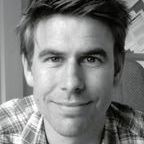Professor Matt Johnson
The University of Sheffield
Matt is a plant biologist with an interest in photosynthesis and respiration. He obtained his undergraduate biochemistry degree at the University of Sheffield in 2003 and continued on to his PhD under the supervision of Prof Peter Horton FRS.
His PhD research was concerned with the responses of the photosynthetic membrane to photo-oxidative stress. In 2007, he joined the research group of Prof Alexander Ruban at Queen Mary University of London as a postdoctoral research associate where he developed an interest in the mechanism of photoprotective energy dissipation in plants. Using electron microscopy, he was able to study how the structure of the thylakoid membrane is reorganised in response to excess light to protect photosystem II from over-excitation.
In 2012, he obtained a Leverhulme Trust Fellowship to explore the compartmentalisation of electron transfer reactions in plant photosynthetic membranes. A major accomplishment of this work has been the development and application of affinity-mapping atomic force microscopy, which uses a specially functionalised probe to ‘recognise’ only a specific type of protein in the membrane. He used this new technique to discover novel plastoquinone diffusion nanodomains that facilitate electron transport between photosystem II and cytochrome b6f complexes in spinach thylakoid membranes. This discovery explains how plants avoids a diffusion limitation of electron transport in the severely protein crowded membrane, ensuring the efficiency of photosynthesis. In 2015 Matt took up a faculty position as Lecturer at the University of Sheffield and now runs his own nascent research group.








